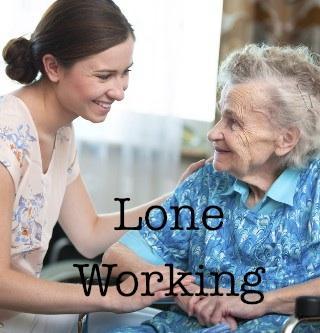Courses

Overview
This course gives the learner a good understanding of how lone working is covered by health and safety law and highlights the importance of conducting a risk assessment before every lone working episode. It goes on to demonstrate what should be involved in a risk assessment and discusses ways of reducing possible risk.

Overview
The learner will gain a good basic knowledge of the importance of maintaining a high level of confidentiality when it comes to the handling of patient-identifiable information.

Overview
This course gives the learner a general understanding of diabetes - what it is, the signs and symptoms associated with it, and how to help someone who is experiencing a diabetes attack.

Overview
This qualification is aimed at learners who currently work, or want to work, in construction and successful completion will enable you to move on to take the CITB health, safety and environment test, and then apply for the new Construction Skills Certificate Scheme (CSCS) Green Card. This card allows access to construction sites in the UK as a non-skilled worker.

Overview
This course is designed to provide you with a general understanding of the concept of safeguarding of vulnerable adults and children and young people.

Overview
This Safeguarding of Vulnerable Adults (SOVA) course is designed to help those who work with vulnerable adults increase their knowledge on such an important subject. Safeguarding adults is everyone’s responsibility and having a thorough understanding of the process is invaluable to you, your business and the vulnerable adults you know. This safeguarding adults training aims to help you identify the signs of potential abuse and understand what to do with your concerns.

Overview
Our safeguarding children course is essential for anybody who works with the young. This safeguarding children course course will help you understand your role and responsibilities, and support you in feeling confident in carrying out appropriate actions should you have any concerns.

Overview
COSHH stands for Control of Substances Hazardous to Health. This course aims to explain all the rules, regulations and good practices which cover the laws relating to the common hazardous substances found in most workplaces.

Overview
This course aims to explain the basics in good hospitality skills and at the same time show how it can be equally useful for workers in other areas of hospitality such as bars, cafes and coffee shops. We will provide the information needed to help you give the best customer service.

Overview
This course is designed to give you the best opportunity to pass the CITB Health, Safety and Environment Test, which is a mandatory requirement to be able to apply for a CSCS Operator-level card that is needed to work on a construction site in the UK

Overview
This course combines The Digital College courses "Level One Award in Health and Safety in a Construction Environment" and "Preparation for the CITB health, safety and environment test" to enable you to attain a CSCS "Green Card" as quickly as possible. This includes applying for the card on your behalf. Nothing extra to pay; all training, exam and card costs included!

Overview
This course will provide you with everything you need to be an effective Fire Marshal in your workplace.

Overview
This course is designed to give the learner a good understanding of personal finance and to help them to reach a realistic and effective balance between the money they have coming in, and money they have going out.

Overview
This course is designed to give you a good understanding of contact centre operations By the end of the course, you will be able to demonstrate an understanding of: • The purpose of a contact centre • The job role of a contact centre agent • The call centre environment – what it’s like working in a call centre • The importance of working with others to improve personal effectiveness and team performance • Quality assurance – how calls are monitored to assure the information given is clear, correct and current • The law in relation to call centre operations • Health, safety and welfare in a contact centre environment • How to contribute to excellent customer service • The difference between inbound and outbound calls • How to contribute effectively to sales within a contact centre • Call centre terminology
